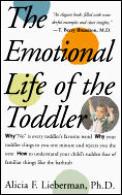VIDEO: Dr. Kirk Schneider on Developing Awe in Existential Psychotherapy
Watch an excerpt from PsychAlive’s interview with Dr. Kirk Schneider.
Dr. Kirk Schneider talks about developing awe in existential psychotherapy.
Lisa Firestone: How do you help patients start to develop this or how does it come up in the psychotherapy setting?
Kirk Schneider: Again, I see that as an organic evolution in the kind of work that I do or that many people do, I think that you do. I’d call it depth existential therapy. It’s wherever you give a person a chance to, again, develop presence, concerted presence to both what is attempting to emerge in their lives, you know, maybe to break through, something that they’ve yearned to do or yearned to be, yearned to feel.
But also attend to what’s holding them back from breaking through and that’s what we often call resistance or protections. It’s the crippler. It’s the judgments, the narrow identifications, the things that hold us back, that disable us, paralyze us. That’s the seed-bed for developing a sense of awe. It’s really, we’re practicing the cultivation of a sense of awe by moving back and forth between what we’re terrorized by and what we’re beginning to – like little tree buds – become more intrigued by.
And eventually even able to engage, maybe in the relationship with the therapist, in our own lives, through our voice, which I know is very important to you, through the power of re-visitation over and over again of our battle, our battle between what’s attempting to break through as we’re, you know, struggling with a particular issue and what is holding us back. And out of that, not for everyone, maybe everyone in degrees, but can come a break through, an eventual break through, if the therapy works, where the person basically decides that they’re not going to take it anymore. They’re not going to live in that same old prison and they’re going to live more of the life that they’ve discovered or re-discovered in the depth therapy presence centered process.
And sometimes that leads to re-discovery of something very meaningful, like maybe a relationship that they feel that they need to revive or an interest in a job, interest in some project, more of kind of a specific goal. But I believe in the best circumstances, it goes beyond that. Maybe you could even say beyond meaning in a kind of conventional definition of meaning, which is more categorical. But this is about being able to experience a sense of freedom, inner freedom.
So it’s not necessarily this or that job or this or that love relationship. It’s about one’s whole approach to life, developing a new attitude toward living that comes out of all that practice one did, blood, sweat and tears in that practice, too. This is not just intellectual practice. This is whole bodied encounter with what’s been killing us and what we want to break through to.
And when you’ve done that with your whole bodily being with all your sweat and blood and tears, you come out of that pretty powerful in the best circumstances. And that can well lead to an ability to stay present to, again, our smallness, our fragility generally in life as well as our greatness, our boldness, our capacity to discover new ways of living. So it’s all there, I mean it’s depth therapy as a staging ground for all.
LS: That’s really…I agree with you.
KS: It’s the practice.
Tags: awe, existential, video








Leave a Reply